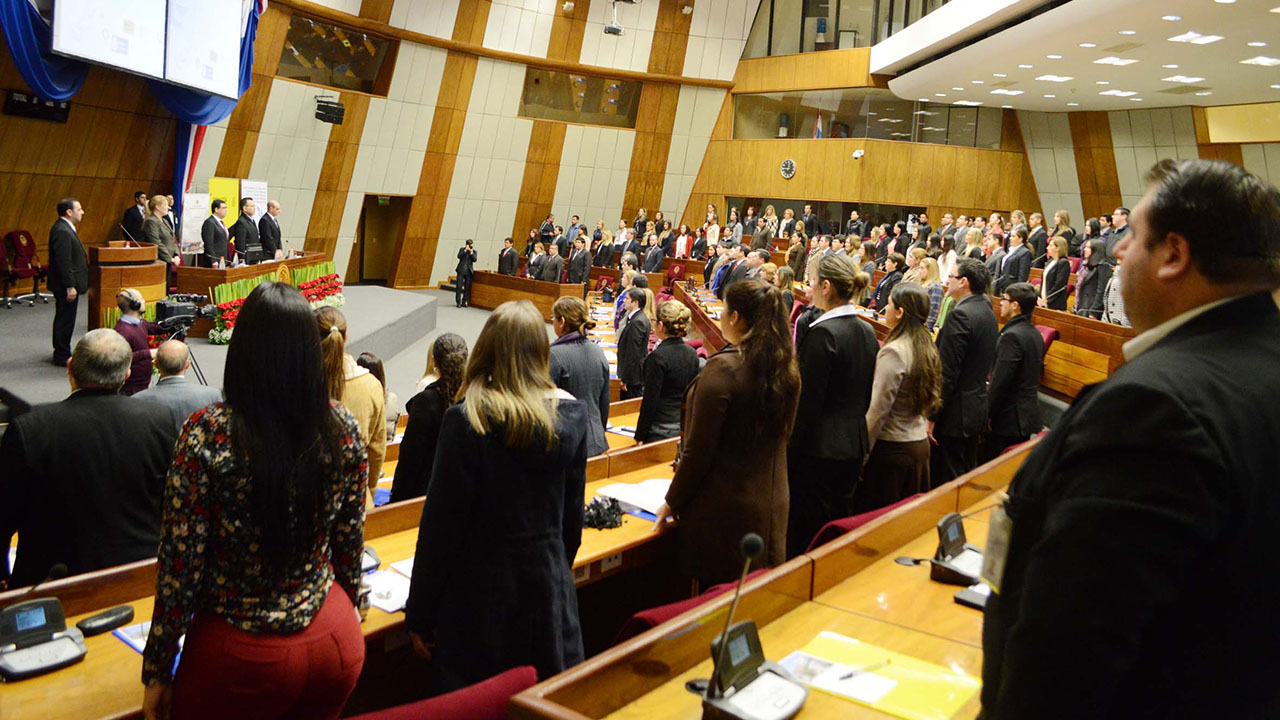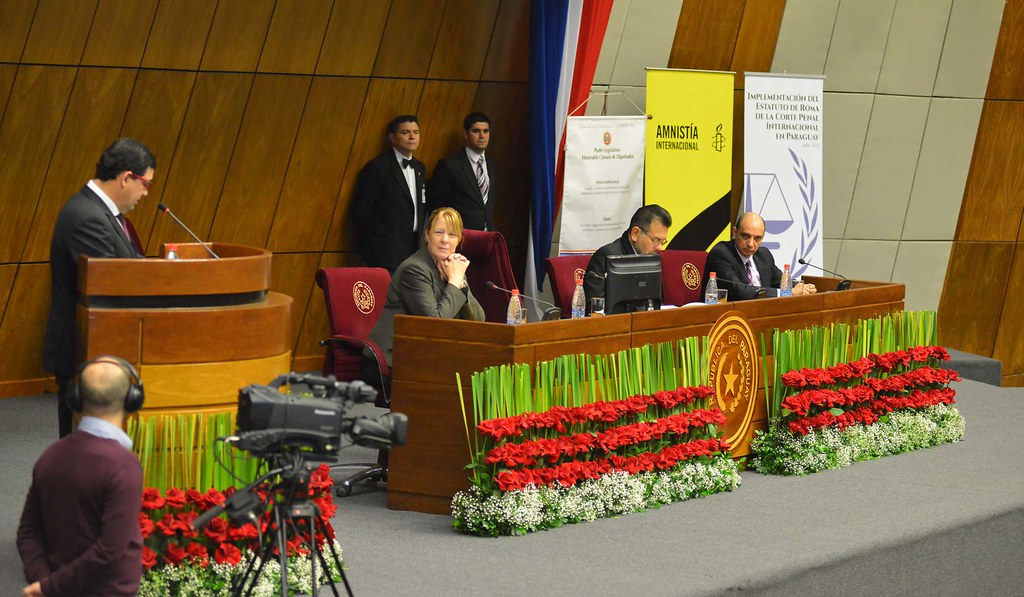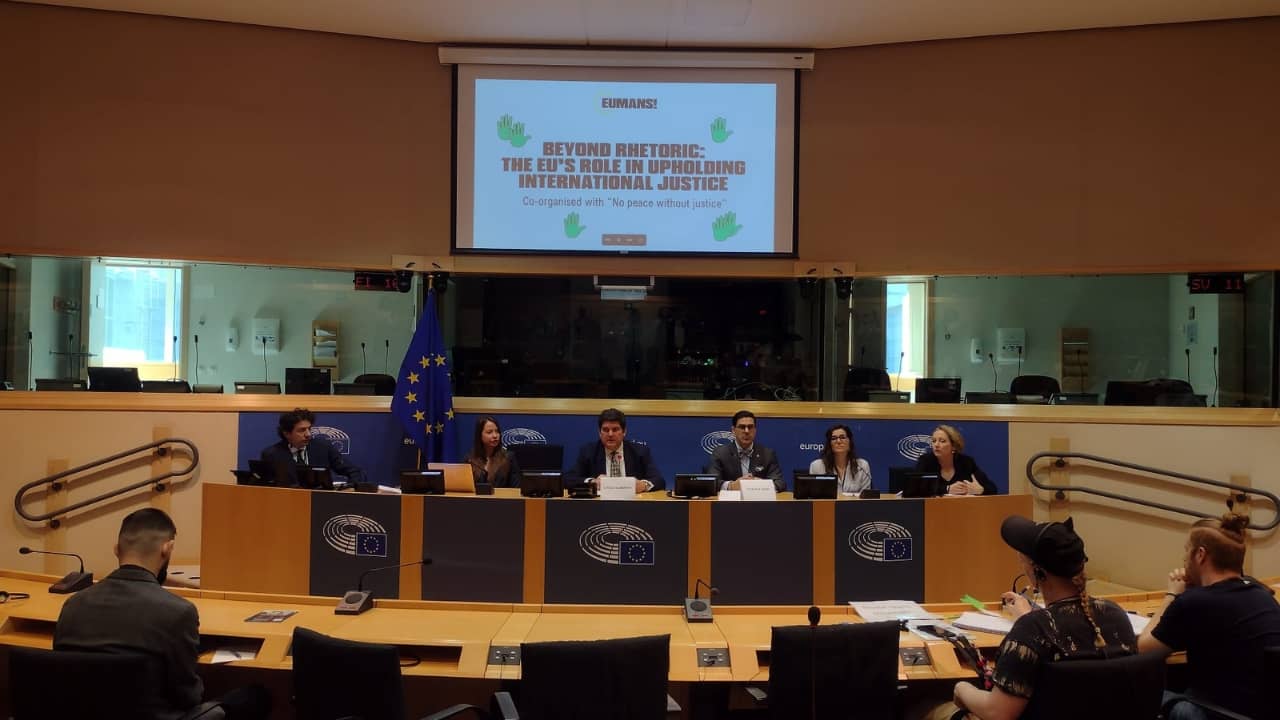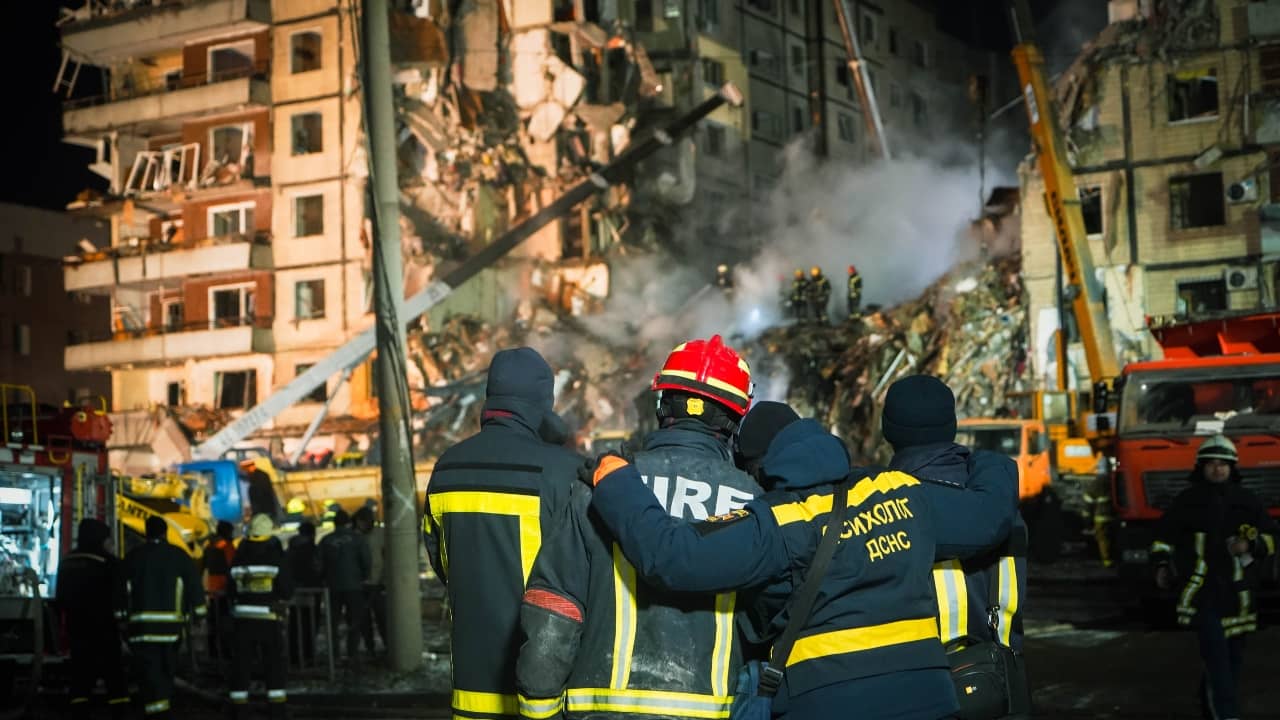
On 7 July 2016, Parliamentarians for Global Action (PGA) organized Consultations on the Implementation of the Rome Statute and Support to the Court, hosted by the House of Deputies of Paraguay with the in-kind support of the Coalition for the ICC and Amnesty International. This event, in the framework of PGA’s Parliamentary Campaign for the Effectiveness and Universality of the Rome Statute, benefitted from the participation of a large number of Paraguayan Legislators and their parliamentary staff from the relevant committees including the Committee of Foreign Affairs, Justice, Constitutional Affairs and Security. Government representatives, members of the diplomatic community as well as representatives of local and international civil society and regional parliamentarians, who actively participated.
Thanks to the Consultations, Sen. Emilia Patricia Alfaro, due to the importance of the topic as well as the fact that the implementing legislation already has favorable decisions from 3 committees and has been in the Senate for analysis since the end of 2013, presented a motion to the plenary of the Senate, on 7 July 2016, for the urgent treatment of the implementing legislation which was accepted by unanimity. The bill is scheduled to be considered on 14 July 2016 by the plenary of the Senate.
In the opening remarks, the President of the Chamber of Deputies of Paraguay, Dip. Hugo Velázquez Moreno, the Deputy Ministry of Justice, Dr. Raúl Caballero and the Director of Human Rights of the Ministry of Foreign Affairs of Paraguay welcomed the consultations and committed to continue supporting the implementation process of the Rome Statute.
The discussions were vibrant and enriching, inter alia thanks to the contributions of Judge Silvia Fernandez de Gurmendi, President of the International Criminal Court, who reminded the audience via a video message that the ICC is a fundamental tool for the International Community that contributes to the prevention and prosecution of international crimes, namely genocide, crimes against humanity and war crimes. Similarly as the ICC, national jurisdictions have the primary responsibility to prosecute such crimes and, under the principle of individual criminal responsibility, bring the perpetrators to justice. The ICC is thus, a Court of ‘last resort’ that complements national jurisdictions, intervening in case States are unable or unwilling to prosecute the perpetrators of international crimes. Legislators have a fundamental role in strengthening the Rule of Law in their country through the full implementation of the Rome Statute of the ICC. President Fernandez also reminded the participants of the decisive role played by States when cooperation is needed by the ICC to fulfil its mandate.
In his presentation, Dr. Felipe Michelini, Board member of the ICC Trust Fund for Victims (TFV), highlighted the importance of the victims’ reparation system created by the Rome Statute and described the core mandates of the TFV.
The panels featured experts who explained the Rome Statute system, in particular the crimes and principles included in the Rome Statute as well as the cooperation mechanism included in part 9 of that instrument and the amendments adopted in Kampala, Uganda, in 2010. The panels also included international and national parliamentarians who shared the experiences of their countries.
In this regard, Dip. Margarita Stolbizer (Argentina) shared the experience of her country regarding the implementation of the Rome Statute as well as the challenges that they are facing regarding ratification of the Kampala Amendments. In the same panel, Dip. Bogado Tatter (Paraguay) described the process of implementation in Paraguay and highlighted the importance of this legislation as a commitment of Paraguay to the never repeat its recent history of gross human rights violations.
During the panel regarding cooperation of Paraguay with the ICC, Dip. Fernando Nicora (Paraguay) highlighted the importance of the cooperation for the functioning of the ICC as well as encouraged the approval of the implementing legislation in the Senate since the bill includes a whole chapter dedicated to the cooperation with the ICC.
The consultations were also the framework to discuss the ratification of the Kampala Amendments to the Rome Statute. In this context, Dip. Daniel Radío (Uruguay) shared with his colleagues from Paraguay the process of ratification in his country and encouraged them to ratify the amendments as soon as the Government sends the bill to the parliament.
The Consultations finalized with the closing remarks of Dip. Barrios Monges (Paraguay) who thanked the panelists and participants and committed, on behalf of Parliament, to boost the process of implementation of the Rome Statute and the ratification of the Kampala Amendments.
Together with Amnesty International Paraguay and the Coalition for the ICC, PGA organized special sessions on the ICC at the Supreme Court of Paraguay where more than 30 judges and prosecutors participated as well as at Columbia University, where more than 150 students, professors and lawyers interacted with the panelists on issues and concerns regarding the Rome Statute system and the functioning of the ICC.





